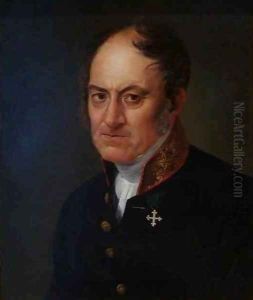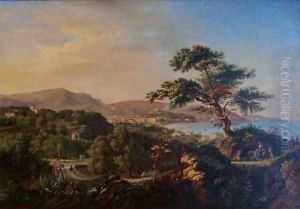Hippolyte Cais de Pierlas Paintings
Hippolyte Cais de Pierlas was a notable figure in the world of art and history, born in 1841 and passing away in 1919. While not a traditional artist in the sense of painting or sculpture, his contributions to the art world are significant through his work as an art historian, collector, and patron. Pierlas hailed from a distinguished background that influenced his path into the realms of culture and history, allowing him access to circles that were instrumental in the cultivation of his interests and activities in the art world.
Throughout his life, Cais de Pierlas was deeply involved in the study and preservation of art. His scholarly work focused on the art history of his native France, with particular interest in the Renaissance and Medieval periods. He was known for his meticulous research and had a profound impact on the understanding of art history during his time. Pierlas amassed a remarkable collection of artworks and historical documents, which he meticulously catalogued and studied. His collection became a valuable resource for scholars and historians, contributing significantly to the academic community's knowledge of art history.
Pierlas was also a member of various historical and artistic societies, through which he promoted the study and appreciation of art. His contributions to these societies, including numerous publications and lectures, helped to elevate the standards of art historical research. Furthermore, his patronage of the arts supported many artists and projects, aiding in the preservation and creation of artworks that might otherwise have been lost to time.
Despite his significant contributions, Hippolyte Cais de Pierlas remains a relatively obscure figure outside of specialized academic circles. His work, however, continues to be of importance for art historians and researchers, offering insights into the art and culture of past centuries. The legacy of Pierlas is that of a passionate advocate for the arts, whose efforts helped to preserve the richness of history for future generations to explore and appreciate.

